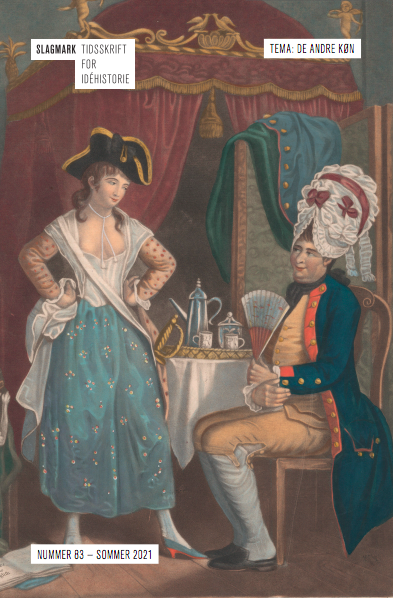Om den moderna tidsregimen och Lydia Wahlströms historiska kvinnokategori
DOI:
https://doi.org/10.7146/slagmark.vi83.144211Keywords:
The modern time regime, Lydia Wahlström, temporality, categories of historical analysis, feminist historiographyAbstract
This article examines a historical work which depicts the history of women and the women’s movement in Sweden, written in 1933 by Swedish historian Lydia Wahlström. Through the theoretical concept of the modern time regime, this article reveals how modern time-structures were integral to Wahlström’s conception of women’s history and the manner in which she constructed the historical development of women’s collective identity. In Wahlström’s work, women as a category for historical analysis harboured facets which shifted during the course of time at multiple durations. However, the category itself acquired a fixed or eternal status, by which it was placed beyond or outside historical time and modern development. In this sense, the time-structure of Wahlström’s category exhibits similarities with the sex/ gender distinction that emerges within feminist historiography in 1970. Through the exposition of this finding, the article seeks to demonstrate how theories of temporality can serve to enforce a critical analysis of feminist historiography. In the specific case of Wahlström’s text, this particular finding also subscribes to the historisation of the sex/gender distinction within feminist historiography.





